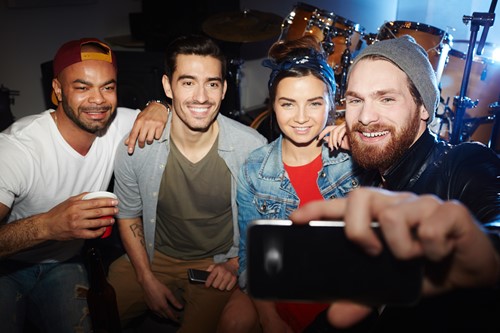The New Music Economy: How Fans and Artists Share Success

For decades, the music industry has operated as a top-down system. Record labels, executives, and A&R teams held the reins, deciding which artists would rise and which wouldn’t. Fans, despite being the lifeblood of the industry, were sidelined—allowed only to consume, not to shape, the world of music. Now, thanks to platforms like FanRaizd, the music economy is evolving into something much more collaborative, where fans and artists work together to achieve success. This new model isn’t just a shift—it’s a revolution.
At its core, the shared music economy is about breaking down barriers between artists and fans. Instead of relying on traditional gatekeepers, artists can now connect directly with their audience, offering them something unprecedented: a stake in their music’s success. Artists tokenize their music, turning their Master Recording Rights into shares that fans can purchase. Fans become stakeholders, earning royalties as the songs they invest in generate income. Both artists and fans benefit from the song’s success, creating a shared journey where everyone wins. This approach shifts the focus from individual transactions (like buying a single or an album) to collaborative growth. Fans don’t just consume music—they become partners in the artist’s career.
One of the biggest challenges in the traditional music industry is access. Emerging artists often struggle to break through without the backing of a major label, and fans have little say in the process. Fan-driven models like FanRaizd are changing that by empowering emerging artists, giving fans a voice, and creating a more inclusive industry. Without the need for label approval, artists can launch their music directly on platforms where fans support them financially and emotionally. Fans, in turn, can champion the artists they love, directly impacting their success by buying tokens, streaming their music, and promoting their work. By removing traditional gatekeepers, more diverse voices and genres can thrive, opening the door to innovation and creativity.
The concept of fans driving success isn’t entirely new—grassroots fan movements have helped launch countless careers. But the shared music economy takes this idea to the next level by formalizing and rewarding fan participation. For example, an indie artist might tokenize their latest single and find success as fans not only purchase shares but also promote the song, driving up streams and visibility. Niche artists in experimental genres can bypass the commercial constraints of labels and find direct support from their audience. Viral campaigns led by fans can also create surges in token value, proving the incredible influence that fans wield in this new ecosystem.
The shared music economy is just getting started, but its potential is massive. Fans won’t just be supporters; they’ll be collaborators, actively involved in shaping the success of the music they love. Artists will have more control over their income, relying less on traditional industry structures and more on their dedicated fanbase. Fans from around the world will participate in a borderless ecosystem of shared creativity and value, while new tools and features will continue to innovate the fan-artist relationship. This new model challenges the idea that music is simply a product to be consumed. Instead, it becomes a shared experience, where every stream, share, and token strengthens the bond between artists and fans.
The shared music economy isn’t just a trend—it’s the future of the industry. Platforms like FanRaizd are proving that fans and artists can do more than coexist—they can thrive together. If you’re an artist, this is your chance to connect with fans in a way that’s both meaningful and rewarding. If you’re a fan, it’s time to take your love for music to the next level by becoming a stakeholder in the artists and songs you believe in. Welcome to the new music economy. Let’s share success, together.